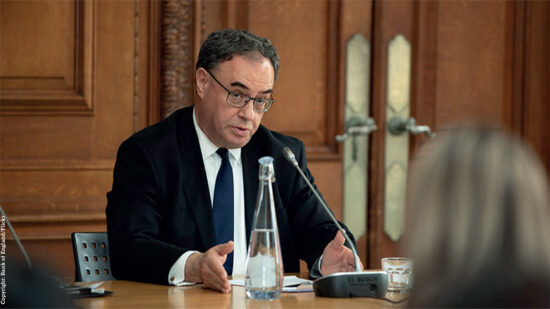“I’ll never forget when we were trying to find a logo. We were sat in the lounge and there was this printer with a lovely badge on it,” says Paul Fewtrell, chairman of International Financial Services, as he remembers his company’s humbler beginnings, when he and wife Louise steered the ship from the modest front room of their Borneo home.
“We thought ‘we love the colour of that blue’, so we just moved the Hewlett Packard sign and stuck ‘IFS’ in the middle. No one was going to care about us in a little room in Borneo.”
IFS has since changed its badge, but that is far from the only development since its 1997 inception, with the company since expanding into Singapore, Qatar and Hong Kong to oversee a total of over $500m in assets under administration for approximately 6,000 clients.
People power
“Our mission has always been to help customers achieve their financial goals in a simple and effective way, and our vision is to be the financial planner of choice in our chosen markets,” says Fewtrell, who puts his success in the financial world down to being a “people’s person in a people’s business”.
Such pragmatism is clearly key to the company, which very much operates under a “keep it simple” ethos.
Take its product selection, which Fewtrell describes as the “final step in the process” after the company has established client goals, time horizons and risk appetite to construct a portfolio that reflects their aspirations by pointing them towards the most appropriate product.
“IFS constantly assesses goals and time horizons with customers, and ensures their planning is relevant and suitable.”
Similarly, the company proudly distances itself from market monitoring, preferring instead to gather data and views from asset management partners such as Jupiter (“We’re not fund managers,” says Fewtrell), as well as taking a relatively straightforward approach to fees.
“Historically, the financial community, globally, has complicated the advisory process when it should be a ‘vanilla’ business.
Of course we have to make a profit, but product fees are tailored to the customer and documented clearly.
We want our customers to be well informed and understand the products they’re using and the purposes for them. This is the basis of a long and strong relationship.”
Well travelled
Originally hailing from Birmingham, Fewtrell entered the financial industry with a job at Abbey Life selling life insurance policies, something he says he felt an affinity with following the childhood passing of his father.
Following this, he was introduced to Expatriate Financial Services, now Montpelier, where he worked for two years and was relocated to Borneo.
It was in Borneo that Fewtrell decided to form IFS, with the goal of catering to mass affluent expats based in Asia who wished to protect and grow their assets.
After a period of travelling, Fewtrell noticed that he was picking up a great deal of business in Hong Kong, which ultimately led the company to move into the city in 1997 after receiving a licence from The Hong Kong Confederation of Insurance Brokers.
“The Hong Kong office has been very steady and has become established over the years,” asserts Fewtrell.
Singapore swing
In 2005, the company moved into Singapore, which would later become the office from which it conducts the greater majority of its business, and is where Fewtrell currently resides.
“Singapore has a large community of affluent expatriates, and the robust regulation ensures that customers are treated fairly. The barrier to entry is, quite rightly, high for advisory firms. The country has clearly established itself as Asia’s Switzerland and we’re very excited about the future,” says Fewtrell, who also says the city-state appeals to him on a personal level.
“It is the perfect city; the lifestyle is as good as it gets. Singapore is full of characters, and that’s the sort of people I want to be doing business with. We moved there because a lot of our clients move around with their jobs, and because it is becoming a real hub for business and opportunity. It’s the best place offshore.”
Fewtrell says IFS is more than prepared for the city’s recent regulatory overhaul, which will see many of the proposals from its Financial Advisory Industry Review (FAIR) brought into legislation by the Monetary Authority of Singapore (MAS) throughout 2015.
Perhaps most notably, the review has proposed the introduction of “commission deferral”, which will ensure payments to a financial adviser are made over a period of six years or over the premium term of
a policy rather than in one up-front lump sum, to encourage improvements in product suitability and the long-term care of clients throughout the advisory community.
Moving with the times
“You have to embrace these changes to regulation, because that gives you an opportunity to improve and move forward. If you go against them it is only going to be a losing battle. It is the people who have already made developments and are continuing to adapt that will get the headstart on everyone else. Forward thinking is massive at all times,” claims Fewtrell.
Alongside commission deferral, the MAS has drafted legislation for the introduction of a so-called “balance scorecard”, which will impose reduced commissions on advisers who have failed to look after their clients properly and meet certain targets, with repeated failure resulting in an adviser’s dismissal and ban from the advice industry.
“The balance scorecard is absolutely fabulous,” says Fewtrell, seasoned in the concept of a scorecard in his self-proclaimed position as a “boring old golfer”.
“It gives a fair review, a fair report and fair advice back to the clients. It also stops people from being driven by commissions, which they shouldn’t be.”
He adds: “In Singapore only the strongest companies, who can afford to completely adhere to regulation, will survive. I think we will see a lot of smaller companies merge. It will definitely get rid of those trying to make a quick dollar, which is absolutely positive for the market.”
Breaking new ground
In addition to its expansion into Singapore, the company opened an office in Qatar in 2009, but Fewtrell says it is only recently that developments have been made in the area.
“Qatar has undergone a lot of regulatory changes from year to year, but it has settled down recently and we are very happy with that. We are currently recruiting there, now that we know where we stand,” he says, adding that the area reminds him of Singapore several years ago, with large numbers of unregulated businesses continuing to operate through the development of local regulation.
“The regulations there have been a little bit patchy. A lot of people are flying in to do unlicensed business but that will stop, like it did in Singapore.”
For IFS, the future looks to hold more than just a continuing focus on Qatar.
Firstly, the company will soon welcome a “very well respected” individual to its board as a non-executive director, where they will sit alongside Fewtrell and fellow members Chris Ivinson and Tim Kiln.
Additionally, the company is set to move into two further, as-yet-unspecified, regulated jurisdictions.
Sustainable development
The company has also introduced a “business realisation scheme” geared at ensuring value for consultants and advisers when they move on their business, and it plans to strengthen existing offerings: “I think we will be adding to all our offices in the future; our model is sustainable and manageable, and can be applied to new jurisdictions without losing any of the quality with which we approach our clients,” he says.
“You streamline everything now, and you can apply that to all of your offices. However, we will only operate where business can be fully regulated.”
Fewtrell assures that, much like his 15-year-old son Max, who races go-karts at an international level, IFS is always looking to win, focusing on expansion, and refusing to stand still in the presence of opportunity.
“We focus our energy on ensuring IFS is the best it can be so we don’t spend time thinking about other businesses”, he says, “It really is our aim to be one of the biggest regulatory expatriate advisory companies.”








